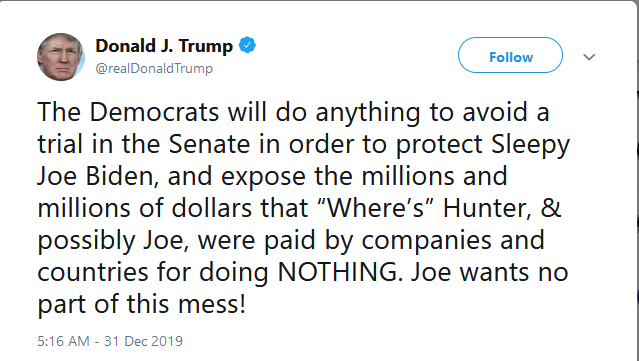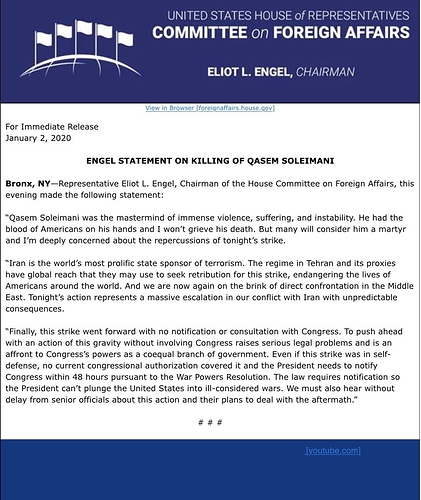A year-end address from Chief Justice John Roberts with some mentions of where judges can help bolster a more educated public warning us of the failings of some social media, ie fake news. Seems like Chief Justice Roberts wants to get out in front of how he views the role of the Supreme Court as a fair and deliberate body tasked with fairly reviewing the facts at hand.
He sends out a bit of a warning flare for conspiratorial, or fake news which may be driving some of the public opinion…but sees the court as fair and just to determine outcomes.
Onward 2020…let’s have Chief Justice Roberts decide what is fair with regard to T’s taxes and more importantly the impeachment trial of DJT. 
In the winter of 1788, New York newspapers reported accounts that medical students were robbing graves so they could practice surgery on cadavers. In April, the chatter gelled into a rumor that students at New York Hospital were dissecting a schoolboy’s recently deceased mother. An angry mob stormed the hospital, and the mayor gave some of the medical staff refuge in the city jail. When the mob marched on the jail, John Jay, who lived nearby, grabbed his sword and joined Governor Clinton to quell the riot. In the ensuing commotion, a rioter struck Jay in the head with a rock, knocking him unconscious and leaving him, according to one ac-count, with “two large holes in his forehead.” Hamilton and Madison pressed the Federalist project forward while Jay recovered from his injuries.
It is sadly ironic that John Jay’s efforts to educate his fellow citizens about the Framers’ plan of government fell victim to a rock thrown by a rioter motivated by a rumor. Happily, Hamilton, Madison, and Jay ultimately succeeded in convincing the public of the virtues of the principles embodied in the Constitution. Those principles leave no place for mob violence. But in the ensuing years, we have come to take democracy for granted, and civic education has fallen by the wayside. In our age, when social media can instantly spread rumor and false information on a grand scale, the public’s need to understand our government, and the protections it provides, is ever more vital. The judiciary has an important role to play in civic education, and I am pleased to report that the judges and staff of our federal courts are taking up the challenge. By virtue of their judicial responsibilities, judges are necessarily engaged in civic education.
Chief Justice Robert’s speech 12.31.19
Roberts was not explicit about whether his call for increased civics education was intended as a rebuke of Trump, although some quickly read it that way. Trump has been widely criticized for repeating false information released online and for retweeting messages posted by conspiracy theorists and racists.
The view of Roberts’ message as a critique of the president was also reinforced by the fact that the two men have clashed publicly over a topic related to the chief justice’s year-end report: Trump’s tendency to label adverse court rulings he and his administration face as the work of judges doing the political bidding of previous, Democratic presidents.
A little over a year ago, Roberts issued a highly unusual public statement that lashed back at Trump’s claims that many federal judges are nakedly partisan and illegitimate.
“We do not have Obama judges or Trump judges, Bush judges or Clinton judges,” Roberts said in a statement. “What we have is an extraordinary group of dedicated judges doing their level best to do equal right to those appearing before them. That independent judiciary is something we should all be thankful for.”



 Statement from the Chair of the House Committee on Foreign Affairs
Statement from the Chair of the House Committee on Foreign Affairs 

 Not the hill I would want to die on that’s for sure. I’m starting to think a lot of these Russia/Trump stories like this one, have become a new kind of political
Not the hill I would want to die on that’s for sure. I’m starting to think a lot of these Russia/Trump stories like this one, have become a new kind of political